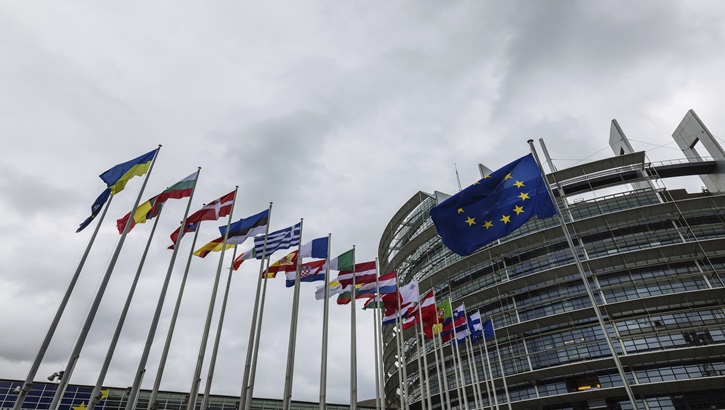Morningstar's "Perspectives" series features investment insights from third-party contributors. Here, Samy Chaar, Chief Economist at Lombard Odier explains why with the risk of a Front National surprise win now gone, investors should focus on the encouraging fundamentals of the Eurozone economy.
Emmanuel Macron has been elected president, scoring a decisive win in the second round of the French presidential elections with a margin of more than 30 points, receiving a total of 66% of votes cast against Marine Le Pen’s 34%. Approximately one-fourth of the electorate abstained from the vote, resulting in a participation rate of 75%, which is a low turnout by historical standards for French presidential elections.

Financial markets, reassured by the first-round result, had priced out most of the risk

This outcome is broadly in line with what opinion poll data were suggesting ahead of the election day. The latest polls, published at the end of last week, had placed Macron’s percentage around 63%. A limited degree of concern remained, with some market participants expressing fears that a low participation rate and the high number of undecided voters could act in Le Pen’s favour. In the event, not only did Le Pen fail to benefit from such a combination, she actually underperformed her poll numbers in the second round, as had also been the case two weeks earlier.
The first-round outcome on April 23 had left French voters faced with a stark choice between a pro-European candidate and a strongly Eurosceptic rival. In electing Emmanuel Macron, they have expressed themselves in favour of European integration. This was another electoral defeat for Eurosceptic parties after the results in Austria and the Netherlands in recent months.
While these results do not signify the end of Eurosceptic tendencies across the continent, they do provide evidence that the momentum is not as strongly in their favour as often assumed and that extrapolating from last year’s votes in the UK and the US can prove a poor guide for elections in the continent.
Financial markets, reassured by the first-round result, had priced out most of the risk premium for a surprise Marine Le Pen win in subsequent trading sessions. We expect the small degree of residual risk premium to be now priced out of the markets swiftly, while investor attitude towards European assets continues to improve over the medium run as the focus turns away from politics.
We have consistently taken the view that the real risk associated with the French elections was an outcome that could lead to a referendum on the country’s euro – or even European Union – membership, thereby potentially shaking the fundamentals of the European integration project.
While president Macron’s ability to govern is uncertain and will depend on the results of the legislative elections, the outcome of the presidential election has clearly reduced this type of existential risk for now – leaving investors to deal with the much more manageable risk of possibly dysfunctional internal politics in France going forward. The legislative elections will take place in two rounds on 11 and 18 June 2017.
As we have highlighted in the past, we believe that the focus should be on the economic fundamentals of the Eurozone. These have been on a trend of consistent improvement, as shown by a series of upside surprises in recent macroeconomic data releases, which have further reinforced our view that the European economic recovery is strongly on track.




























